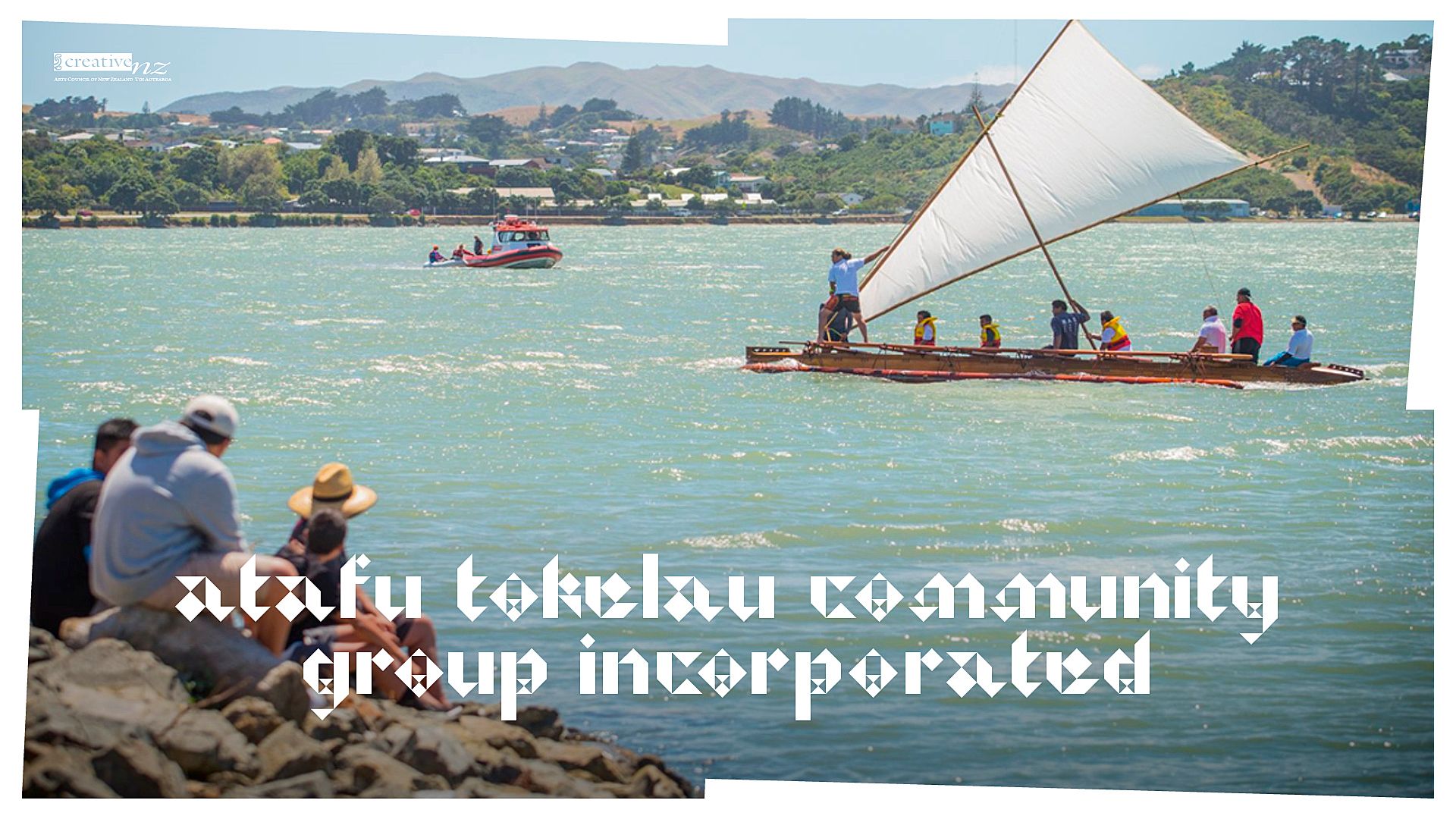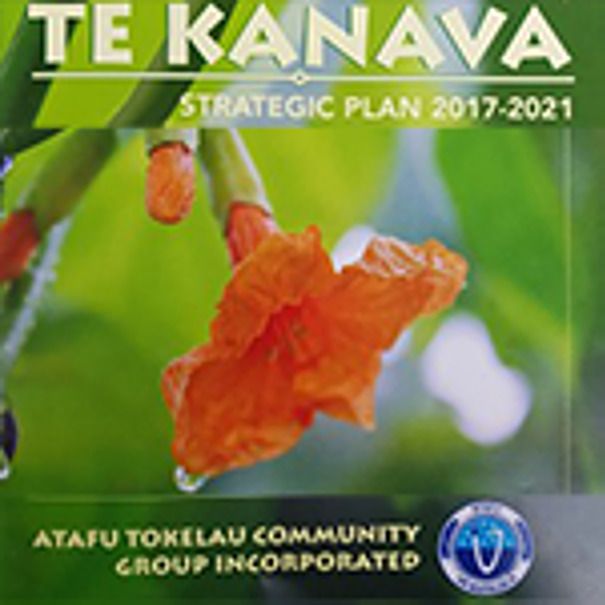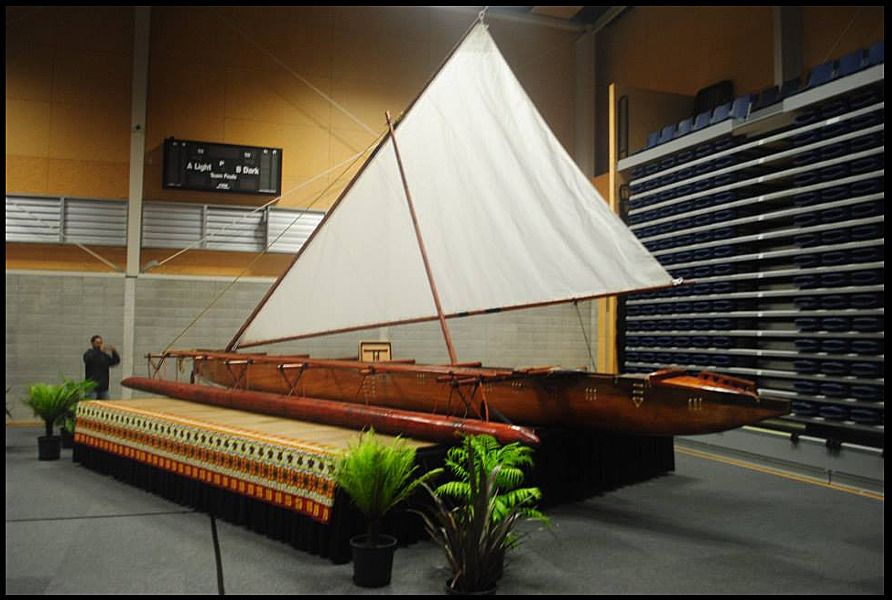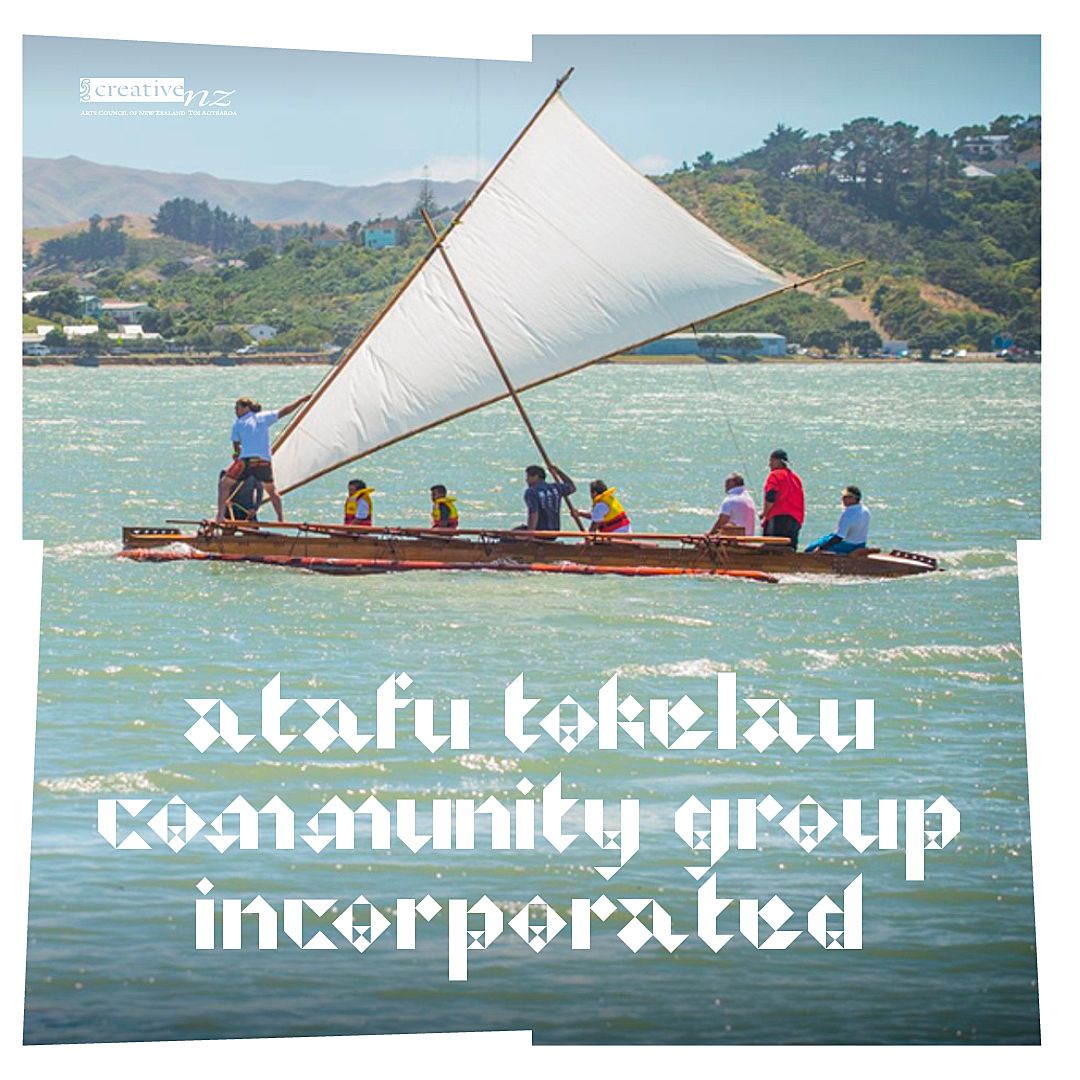Toku kāiga, he kānava, he fau e hē uia. My community, my heritage, a gift that is forever treasured.
How do you keep your language, culture and values alive in a new place? Atafu Tokelau Community Group members share their journey of buying land, laying roots and building community.
We’re collaborating with Creative New Zealand to bring you the ground-breaking Pacific Arts Legacy Project. Curated by Lana Lopesi as project Editor-in-Chief, it’s a foundational history of Pacific arts in Aotearoa as told from the perspective of the artists who were there.
Lagi-Maama Academy & Consultancy had the pleasure of connecting in person with Moses Viliamu at the Mitre 10 café, Porirua in June 2021 to discuss the contribution of the Atafu Tokelau Community Group Incorporated to this Pacific Arts Legacy Project. Later on in the process we connected with another member of the group Zechariah Reuelu, both of whom were born into the Atafu collective. Utilising the collective minds and hearts of those that already gifted their knowledge and history of the group in their ‘Te Kanava Strategic Plan 2017-2021’, we worked with Moses and Zechariah to provide an insight into their collective journey with what has been gifted in this paper. The header image for this paper is of the Mulihelu vaka sailing on the waterfront at Te Awarua-o-Porirua Harbour with members of the Atafu Tokelau Community Group Inc participating in the 2019 Waitangi Day water activities run by Porirua City Council in partnership with mana whenua Ngāti Toa and Whitireia New Zealand. An insight into the significance of Mulihelu vaka as a symbol of the collective resilience, innovation and adaptation of Tokelau knowledge and culture in Aotearoa is also presented in this paper.
Atafu toku nuku pele,
Kua fai koe ma oku mitamitaga,
Ko au e tau mo koe,
E he mamoe foki,
Taku tautua mo koe.
My dear Atafu
An Island I hold close to my heart
I stand by you and represent you
My support and love for you
Will not whither.
Atafu Tokelau in Porirua
In the 1950s, immigrants who travelled from their remote coral atoll Atafu to Aotearoa New Zealand were mainly young men and women. Many Tokelau migrants became founding members of Aotearoa New Zealand Tokelau communities. Their lives significantly contributed to the establishment and social organisation of culturally distinguished urban communities. The tupulaga leaders (people of the same age group, generation), through the Atafu family kinship, revived the pre-eminent cultural principle of maopoopo, which means to gather together and be unified, promoting a vision of Tokelau ways in Aotearoa. The different physical, social and economic environments of the new home in Aotearoa were strangely different from their Tokelau homeland settings. They learned to adapt and transition to sustain their communal wellbeing. The period of adaptation drove the settlers to organise themselves into a collective group driven by social survival.
maopoopo, means to gather together and be unified, promoting a vision of Tokelau ways in Aotearoa
During the 1960s, the new state-housing development alongside the growth of jobs in the manufacturing industry drew many Tokelauans to Porirua City. The Porirua Atafu Tokelau families grew in numbers that caused unexpected challenges to maintaining their communal activities. The restrictions of the existing community facilities they could secure from schools and local council halls were the catalyst to motivate the Atafu families to have a communal place of their own. In 1978, five hectares was purchased in Cannons Creek and this is where Matauala was built. At this time the Atafu Tokelau Community Group was the first Pacific organisation to purchase land in Porirua. Cannons Creek, where Matauala is located, has the largest Tokelauan population residing outside Atafu village in Tokelau.
Matauala has become an investment for future generations to continue the Atafu ethos and culture, as a model that ensures our Tokelau family structures, values, culture and traditions are maintained.
Members of Atafu Tokelau Community Group Inc. in front of Matauala Hall, early 1990s.
Matauala (Atafu): Home away from Home
In 1987, a purpose-built community hall named Matauala, another name for Atafu, was opened in Cannons Creek, Porirua. Matauala became a home away from home that our Atafu community could call our own. Six years earlier, in 1981, the Atafu Tokelau Community Group was registered as an Incorporated Trust. In January 2017, to celebrate 30 years since the opening of Matauala, our Atafu Tokelau Community Group Inc. launched our five-year strategic plan, Te Kanava, in which the strength and resilience of our group’s vision took on the analogy of the Atafu kanava tree (Cordia subcordata).
the branches of the kanava tree are a safe haven for birds to nest, to roost during stormy weather, and to rest during the migration season
Kanava is a native tree that flourishes in the forest of Tagaleleva, Atafu, Tokelau. The roots are well grounded, anchoring the tree with a solid foundation. The durable timber can withstand the elements, and is therefore the most preferred wood for making traditional canoes and other crafts. The branches of the kanava tree are a safe haven for birds to nest, to roost during stormy weather, and to rest during the migration season. This symbolises the importance for our community to be a shelter of compassion and care for our people, especially those most vulnerable.
The kanava is known to grow in challenging environmental conditions and therefore has become an inspiration to our Atafu Tokelau Community Group Inc. to be resilient, to be adaptive in our pursuit of opportunities that advance our community in a rapidly changing society and world.
Toku kāiga, he kānava, he fau e hē uia. My community, my heritage, a gift that is forever treasured.
Atafu Tokelau Community Group Incorporated’s Te Kanava: Strategic Plan 2017–2021.
Atafu Tokelau Porirua Legacy
The Atafu Tokelau Community Group Inc. promotes religious, social, educational and welfare development, as well as fostering traditional cultural values within Tokelauan communities in Aotearoa New Zealand. As an Atafu Tokelau community living in Aotearoa, there is much for which we are truly grateful. But there are also many challenges that our society still faces, particularly here in Porirua. One of these challenges is that our Tokelau language is severely endangered. As the largest Tokelauan population, which now resides in Porirua, we needed to take urgent steps to ensure its survival within our growing population here in Aotearoa New Zealand. We set up innovative programmes that are instrumental in our Tokelau culture and language revitalisation, to survive for future generations.
this is a community of fishermen who are among the first to record their traditional knowledge and make it publicly available
Over the years, the Atafu Tokelau Community Group Inc. has worked with several government agencies to deploy Tokelau culture and language projects, and to develop cultural language resources. In partnership with the Ministry of Pacific Island Affairs (now Ministry of Pacific Peoples [MPP]), the Tokelau community deployed the Mind Your Language project (2006–2009), a pilot Tokelau-language project developing language-learning resources. A website, a calendar and language-learning booklet were produced and launched in 2009. We have also undertaken publications in the Tokelau language, including in 2008 Hikuleo i te Papa o Tautai, which was supported by Creative New Zealand and the New Zealand Lotteries Grants Board. The New Zealand National Commission for UNESCO funded its translation into the English language, as well as the publication of Echoes at Fisherman’s Rock: Traditional Tokelau Fishing in 2012. The Atafu elders wrote these books for the benefit of their children and grandchildren, driven by their own initiative and without payment. This is a community of fishermen who are among the first to record their traditional knowledge and make it publicly available.
Hikuleo i te Papa o Tautai, 2008
The Atafu community also contributed to the first publication of a booklet of Tokelau proverbs by the Tokelau Wellington Leadership Group in 2011. This publication recorded over 200 Tokelau proverbs in the Tokelau language, and was collated by various elders across the Wellington Region. This book was called Alagākupu Tokelau and the project was funded by the Ministry of Pacific Island Affairs (now MPP). We were also one of the founding organisations, through the Tokelau Wellington Leadership Group, to establish the Tokelau Language Week event in New Zealand in 2012. This is a national event, celebrated by all Tokelau New Zealanders every October. Our aim is to spearhead cultural endurance through language initiatives. One of these ways has been to work closely with the Ministry of Education to push Gagana Tokelau as a core subject in the curriculum, to keep our language alive. After two years of consultation we are seeing great progress towards this and, together with the other Tokelau groups involved, all our hard work is paying off.
Our collaborative programme has begun to authentically enrich the local curricula of Porirua schools. NCEA students benefited from teachers from the local schools working in partnership with the Atafu community to learn, prepare and achieve Unit Standards in Pacific Studies. The Atafu Tokelau Porirua group has also been instrumental in advocating for Gagana Tokelau to be an NCEA subject, and this finally came to fruition in 2021.
Currently, at Porirua College, we co-facilitate Tokelau language classes as part of our innovative curriculum programme. This course runs five hours a week with students from Years 9 to 13, and is co-taught by a member of the Atafu community and the Head of Languages.
Alagākupu Tokelau, a booklet of Tokelau proverbs, 2011
Fast-forward to 2021, when we are still actively continuing our work on supporting the preservation and practice of our Tokelau language. We are working together with OMGTech! to develop Tuku Ifo, a mobile-phone app focused on speaking Gagana Tokelau. This came out of a programme we ran with our youth to encourage, educate, strengthen and build mana, and to engage them in a modern context, through game development. It was a means to ensure this work builds sustainable change in the community and not to dilute our culture. The genesis of Tuku Ifo came from a workshop OMGTech! ran in 2019 to design an app that would strengthen our language. This was an early ideation session in which the community representatives dreamed up what they would like to see. The app ensures that it is teaching in a way that is authentic and accurate, and increases understanding of the Tokelau culture. This was achieved through working with a group of students and training them to use the programme, and to develop the app and a game so that they can maintain it over time and make any additional changes into the future. Tuku Ifo was officially released during Tokelau Language Week 2020.
Tokelau community members at the fatele finale for Tokelau Language Week, Porirua 2018
Many generations of Atafu Tokelauan families have continued the ethos and culture as a care model to ensure the revitalisation of our family structures, values and traditions. The current reality of living in Aotearoa New Zealand requires innovative thought leaders generating new pathways while remaining relevant to our Indigenous Tokelau contexts and preferences. Modern society is continuing to adapt, to learn other values of this multicultural society to advance the harmony and prosperity of the diaspora of Tokelau families.
Matauala Hall has been and continues to be a focal point for the Tokelau community in Wellington. The Hall has also served the wider community's needs, such as hosting delegations from overseas, government agency engagements, launch events, family reunions and gatherings, and has also hosted local school students, teachers and families. Matauala Hall is our cultural setting, where our identity is at home. This was expressed by Kelihiano Pou Amusia in 2017, when he said that being a part of our Atafu Tokelau organisation has been an instrumental part of his life; his parents have been influential in encouraging him to actively participate, and as a result of this he believes that Matauala has helped instil in him a strong sense and understanding of his Tokelau culture, identity and language. He envisions a lot of positive changes that can be made to the community facility, including a space that is appealing for young people, with a basketball and sporting area for games and activities.
The vaka Mulihelu, which was built between 2011 and 2012 as part of Atafu Tokelau Community Group Inc.’s Tokelau Traditional Vaka Project. Photograph courtesy of Tokelau Vaka Porirua Facebook page
Matauala has convened weaving and traditional carvings by elders. For example, in 2011 to 2012, the Atafu Tokelau Community Group Inc. initiated the Tokelau Traditional Vaka Project, which was an attempt by Tokelauan elders in Porirua to interest young people in the culture and traditions of their homeland. This was an intergenerational project of traditional canoe builders passing on traditional knowledge and skills of building a Tokelau vaka to the younger generation. The project involved a core group of 30 men and boys working eight hours a day, six days a week, for six months from November 2011 to carve a Tokelauan outrigger vaka from two huge totara logs. One of the master carvers, the late Vase Reupena, was able to pass on his skills to the community’s apprentice carvers. He first taught them how to make the carving tool – the toki, or adze – and then how to butterfly join two hollowed logs together to form the seven-seater vaka. The vaka was given the name Mulihelu, and has been sailed many times around the waters of Porirua and has featured at many festivals. A DVD, children’s book and Facebook page were developed that document the whole making process to preserve the cultural knowledge and make more resources available for educational purposes. Support and funding for this project was provided by Creative New Zealand and Mana Community Grants. In 2013, the significance of our vaka project as a means to bridge intergenerational passing on of knowledge between elders and young people was acknowledged and recognised when we were the recipients of the Creative New Zealand Pacific Heritage Arts Award.
Members of Atafu Tokelau Community Group Inc. after receiving the Creative New Zealand Pacific Heritage Arts Award, 2013
Atafu Tokelau’s Commitment
The Atafu Tokelau Community Group Inc. has a proud history spanning 50 years in Aotearoa New Zealand. The community numbers have increased steadily over the past 35 years; the freehold land and buildings are a multimillion-dollar asset. Physical assets have now increased many fold, with the addition of human capability and expertise acquired by first- and second-generation Tokelauans through the educational opportunities made possible by their parents and relatives. At the same time, contributions and civic participation in Porirua, and social activities and policies, testify to a group participating fully in Aotearoa New Zealand society and development.
The asset is a base, and we can now afford to strategically focus on community needs and deliver appropriate services such as educational, social-support and social-enterprise activities.
we need to focus on our young people to assist us to navigate in areas we are not familiar with
Te Kanava, our five-year strategy (2017–2021), mentioned at the beginning of this article, is our community’s commitment to ensuring our traditional knowledge, values and legacy as Tokelauan people survives, and is transmitted to the current generation to future proof our way of life for the benefit of Tokelau in generations to come. Our reality of living in Aotearoa New Zealand requires us to be open to new skills, technology, knowledge, experiences and ideas to ensure our survival and ongoing contribution to our community in the 21st century. We need to focus on our young people to assist us to navigate in areas we are not familiar with. We need to enable our young leaders to be well equipped for future leadership roles regionally, nationally and internationally. We can contribute to these new areas by instilling a strong sense of their Tokelauan identity, culture and traditional ideologies to secure their place in the world as Tokelauan people.
Some 50 years after our founding members arrived in Porirua, our Atafu Tokelau Community Group Inc.’s vision with our Te Kanava strategy shifts, with notions of cultural and economic advancements. Te Kanava embodies a new approach that meshes modern operation systems with traditional support from elders as advisors and spiritual leaders.
Mrs Tufaina Faraimo
Testimonials in Te Kanava: Strategic Plan 2017–2021 include the words of Mrs Tufaina Faraimo, who was born and raised in Wellington and whose parents, Sila and Filoto‘atasi Taupe, have been part of the group since its inception. She and her husband, Seanoa Faraimo, have raised their three children in Cannons Creek, Porirua. Tufaina, at the time, was Assistant Principal at Glenview School. She has been a proactive member of this organisation as the current secretary and a committee member, supporting the delivery of various initiatives and programmes.
I believe Atafu needs to build strong leadership among our youth for the 21st century, by nurturing young people who have a strong sense of who they are, an unshakeable faith in God together with the creative, collaborative and critical-thinking skills required to adapt in a 21st-century world.
*
This piece is published in collaboration with Creative New Zealand as part of the Pacific Arts Legacy Project, an initiative under Creative New Zealand’s Pacific Arts Strategy.
Lana Lopesi is Editor-in-Chief of the project.
Series design by Shaun Naufahu, Alt group.
Header Photo by Zechariah Reuelu










